In the rapidly evolving landscape of modern dentistry, the integration of digital technologies has revolutionized treatment planning and patient care. Among these advancements, implant scan body have emerged as indispensable tools, offering unprecedented levels of precision and efficiency in dental implantology. This article explores the transformative impact of implant scan bodies, their benefits, technological advancements, and future prospects in enhancing dental practice.
Exploring Implant Scan Bodies: Understanding Types of Implant Scan Body
Implant scan body, also known as impression copings or digital scan bodies, are available in various types and configurations to cater to the diverse needs of dental and medical professionals. These specialized components play a crucial role in capturing accurate digital impressions and facilitating precise treatment planning for dental and medical implant procedures. Here, we explore the different types of implant scan bodies, highlighting their variations in material composition, size, and compatibility with imaging technologies.
Material Composition :
Titanium Alloy Scan Bodies:
- Titanium alloy scan bodies are widely used due to their biocompatibility, strength, and corrosion resistance.
- They are suitable for both intraoral scanning and traditional impression techniques.
- These scan bodies are often preferred for their durability and ability to integrate seamlessly with CAD/CAM workflows.
Zirconia Scan Bodies:
- Zirconia scan bodies offer excellent aesthetic properties and biocompatibility.
- They are particularly useful in cases where natural-looking restorations are desired, such as in anterior regions of the mouth.
- Zirconia scan bodies are compatible with digital impression systems and contribute to high-precision implant planning.
Polymer Scan Bodies:
- Polymer scan bodies are lightweight and flexible, making them comfortable for patients during scanning procedures.
- They are typically used in conjunction with intraoral scanners and are known for their ease of handling and accurate digital data capture.
- Polymer scan bodies may offer cost-effective options for certain clinical scenarios.
Size and Design Variations:
Standard vs. Customized Scan Bodies:
- Standard scan bodies come in predefined sizes and shapes that correspond to common implant systems.
- Customized scan bodies are fabricated to match specific patient anatomies, providing tailored solutions for complex cases or aesthetic requirements.
Angled and Multi-Unit Scan Bodies:
- Angled scan bodies accommodate implant positions that are not parallel to each other or to the occlusal plane.
- Multi-unit scan bodies are used in cases where multiple implants need to be scanned simultaneously to ensure accurate alignment and restoration design.
Compatibility with Imaging Technologies:
Intraoral Scanners:
- Implant scan bodies are designed to be compatible with various intraoral scanning systems from different manufacturers.
- They facilitate direct digital impressions of implant positions within the patient’s mouth, minimizing the need for conventional impression materials.
You can also read: Smile Renewed: The Power of Dental Denture Implants
Cone Beam Computed Tomography (CBCT):
- Some implant scan bodies are compatible with CBCT imaging, allowing for the integration of 3D radiographic data with digital impressions.
- This capability enhances the accuracy of implant planning by providing comprehensive anatomical information.
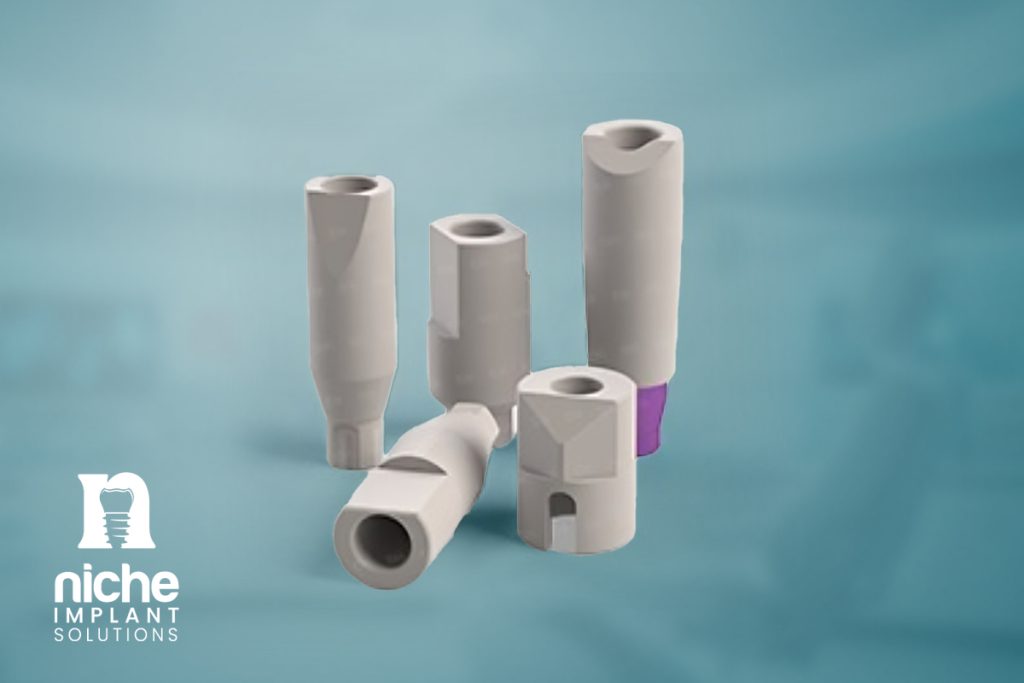
Optical Scanning Systems:
- Optical scanning systems, such as structured light scanners or laser scanners, may also be compatible with certain types of implant scan bodies.
- These systems offer high-resolution digital data capture, which is essential for detailed prosthetic design and fabrication.
The diversity of the implant scan body reflects ongoing advancements in digital dentistry and medicine, offering practitioners a range of options to suit specific clinical needs and technological preferences. By understanding the characteristics and capabilities of different types of implant scan bodies, dental and medical professionals can leverage these tools to achieve optimal treatment outcomes and enhance patient care.
Technological Advancements in Implant Scan Body: Revolutionizing Digital Dentistry and Medicine
In recent years, implant scan body have undergone remarkable technological advancements, driven by innovations in design, materials, and their seamless integration with digital workflows. These advancements have transformed the precision, efficiency, and patient outcomes in dental and medical implant procedures. Here, we delve into the latest developments shaping the future of implant scan bodies:
Improved Design Features:
Precision and Accuracy:
- Modern implant scan body feature enhanced geometric designs and surface characteristics that optimize digital data capture.
- Advanced manufacturing techniques, such as computer numerical control (CNC) machining and additive manufacturing (3D printing), enable the production of scan bodies with tight tolerances and minimal distortion.
Ergonomic Considerations:
- Ergonomically designed scan bodies enhance ease of handling during intraoral scanning procedures.
- User-friendly features, such as color-coded identifiers or ergonomic grips, facilitate efficient workflow management for dental and medical professionals.
Enhanced Materials:
Biocompatible Alloys:
- Titanium and titanium alloys remain popular choices for implant scan body due to their biocompatibility, strength, and resistance to corrosion.
- Advancements in metallurgy have led to the development of high-performance alloys that exhibit superior mechanical properties and longevity.
Aesthetic Solutions:
- Zirconia scan bodies offer aesthetic benefits in cases where natural-looking restorations are desired.
- These materials provide excellent translucency and color matching capabilities, enhancing the aesthetic outcomes of implant-supported restorations.
Integration with Digital Workflows:
Interoperability with CAD/CAM Systems:
- Implant scan body seamlessly integrate with computer-aided design (CAD) and computer-aided manufacturing (CAM) systems.
- Digital impressions captured with scan bodies can be directly imported into CAD software for virtual prosthetic design and fabrication.
Compatibility with Intraoral Scanners:
- Advances in intraoral scanning technology have improved the speed and accuracy of digital impression capture using implant scan bodies.
- Real-time feedback and visualization capabilities streamline treatment planning processes and enhance communication between dental teams and patients.
Smart and Connected Solutions:
Digital Connectivity:
- Some implant scan body feature RFID (Radio Frequency Identification) or NFC (Near Field Communication) technology for digital identification and traceability.
- These smart solutions enable seamless tracking of scan bodies throughout the treatment workflow, ensuring data integrity and patient safety.
Cloud-Based Solutions:
- Cloud-based platforms facilitate collaborative treatment planning and remote consultation using digital scans captured with the implant scan body.
- Secure data storage and accessibility enhance communication among interdisciplinary teams and improve patient-centric care.
Predictive Analytics and AI Integration:
Data-driven Insights:
- Integration of artificial intelligence (AI) algorithms with implant scan body data enables predictive analytics for treatment planning and outcome assessment.
- AI-driven software solutions analyze digital scans to optimize implant placement and prosthetic design based on patient-specific anatomical parameters.
technological advancements in implant scan bodies have revolutionized the landscape of digital dentistry and medicine, empowering clinicians with tools that enhance precision, efficiency, and patient satisfaction. As these technologies continue to evolve, the future promises further innovations that will redefine standards of care in implantology, ensuring personalized treatment solutions and improved clinical outcomes for patients worldwide.
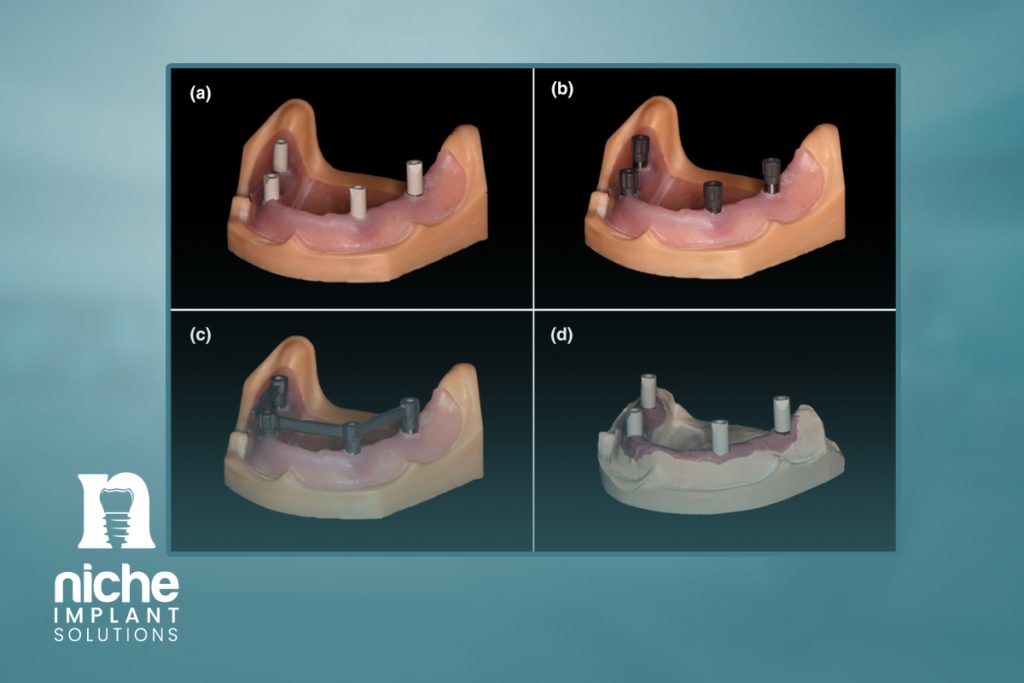
Benefits of Using Implant Scan Body: Enhancing Efficiency and Precision in Dental and Medical Procedures
Implant scan body have revolutionized the field of dental and medical implantology, offering a range of benefits that significantly improve both patient care and clinical workflows. Here are the key advantages of incorporating implant scan bodies into dental and medical practices:
Reduced Procedure Time:
Implant scan bodies streamline the treatment planning process and reduce procedural time by enabling efficient digital workflows:
Digital Impressions
- Implant scan bodies facilitate the capture of precise digital impressions, eliminating the need for conventional impression materials and trays.
Instant Feedback
- Intraoral scanners provide real-time feedback, allowing clinicians to assess the quality of digital scans immediately.
Faster Prosthetic Fabrication
- Digital impressions obtained with scan bodies can be directly imported into CAD/CAM systems for rapid prosthetic design and fabrication, minimizing turnaround times.
Improved Patient Outcomes:
The use of implant scan bodies contributes to improved clinical outcomes and patient satisfaction through enhanced treatment predictability and personalized care:
Precision in Implant Placement
Accurate digital impressions captured with scan bodies facilitate precise implant positioning, optimizing osseointegration and prosthetic fit.
Customized Treatment Plans
Digital data from scan bodies enable clinicians to tailor treatment plans based on individual patient anatomy, ensuring optimal aesthetic and functional outcomes.
Minimized Complications
Enhanced diagnostic capabilities and thorough preoperative planning reduce the likelihood of intraoperative complications, promoting long-term implant success rates.
Enhanced Diagnostic Capabilities:
Implant scan body empower clinicians with advanced diagnostic tools that enhance decision-making and treatment accuracy:
Detailed 3D Visualization
- Digital impressions generated by scan bodies provide detailed 3D models of the patient’s anatomy, enabling comprehensive assessment of bone structure and soft tissue contours.
Virtual Treatment Simulations
- CAD software allows for virtual implant placement simulations based on digital scans, facilitating collaborative treatment planning and patient communication.
Integration with CBCT Imaging
- Combining digital impressions from scan bodies with cone beam computed tomography (CBCT) scans offers a holistic view of anatomical landmarks and facilitates precise implant placement in complex cases.
Patient Comfort and Experience:
The use of implant scan bodies enhances patient comfort and overall experience during dental and medical procedures:
- Minimized Chairside Time
Reduced reliance on traditional impression materials and fewer adjustments during prosthetic fittings contribute to a more comfortable treatment experience.
- Non-invasive Scanning
Intraoral scanners used with scan bodies offer a non-invasive alternative to conventional impression techniques, reducing patient discomfort and anxiety.
- Visual Communication
Digital impressions allow patients to visualize proposed treatment outcomes, promoting informed decision-making and enhancing satisfaction with treatment results.
In summary, implant scan body represent a paradigm shift towards digital-driven precision in dental and medical implantology. By leveraging advanced technologies and enhancing procedural efficiencies, implant scan bodies empower practitioners to deliver personalized care and achieve superior clinical outcomes, ultimately improving the overall quality of patient care.
“Precision Pioneers: Redefining Implant Scan Body Through Niche dental solution company Innovation”
In the dynamic field of dental and medical implantology, niche company specializing in implant scan bodies occupy a crucial niche by offering specialized products and services tailored to specific market needs. Unlike larger manufacturers, these companies often excel in areas such as innovation, customization, and personalized service, providing unique value propositions that cater to the diverse requirements of dental professionals and patients.
Innovation and Specialization:
- Niche company often lead the way in innovation by focusing on developing advanced technologies and proprietary designs for implant scan bodies. They may introduce novel materials, ergonomic designs, or integration with cutting-edge digital workflows that set them apart from mainstream competitors.
- By staying agile and responsive to market trends, niche company can swiftly adapt to technological advancements and customer feedback, driving continuous improvement in their product offerings.
Customization and Personalization:
- One of the key strengths of niche company lies in their ability to offer customized solutions that meet specific clinical requirements and preferences. They may collaborate closely with dental professionals to develop bespoke implant scan bodies tailored to unique patient anatomies or complex case scenarios.
- This personalized approach not only enhances treatment outcomes but also fosters strong relationships based on trust and collaboration between the niche company and its clientele.
Focus on Quality and Service Excellence:
- Niche company prioritize quality control and adherence to stringent regulatory standards, ensuring the reliability and safety of their implant scan bodies.
- They often excel in providing exceptional customer service, offering responsive support, technical expertise, and educational resources to assist dental professionals in maximizing the benefits of their products.
Market Differentiation and Competitive Advantage:
- By carving out a specialized niche, these companies differentiate themselves from larger competitors who may have broader product portfolios but may not offer the same level of customization or innovation.
- Their unique value propositions attract a loyal customer base seeking specialized expertise, reliability, and innovative solutions in implant scan bodies.
Contributing to Industry Advancement:
- Niche company play a vital role in advancing the field of implantology by contributing to research and development efforts, collaborating with academic institutions, and participating in industry conferences and events.
- Their contributions drive innovation, foster healthy competition, and ultimately benefit dental professionals and patients through enhanced treatment options and improved clinical outcomes.
While niche company in the implant scan body market may operate on a smaller scale compared to industry giants, they wield significant influence by specializing in innovation, customization, and service excellence. Their agility, focus on quality, and commitment to meeting specific market needs position them as valuable contributors to the ongoing evolution of digital dentistry and medical implantology.
By partnering with Niche Dental, you gain access to the best possible tools, exceptional service, and a company committed to the continuous advancement of dentistry in Egypt, all while supporting a company dedicated to social responsibility.
Contact Niche Dental Now : Experience the Difference
Call us on : +201011687002

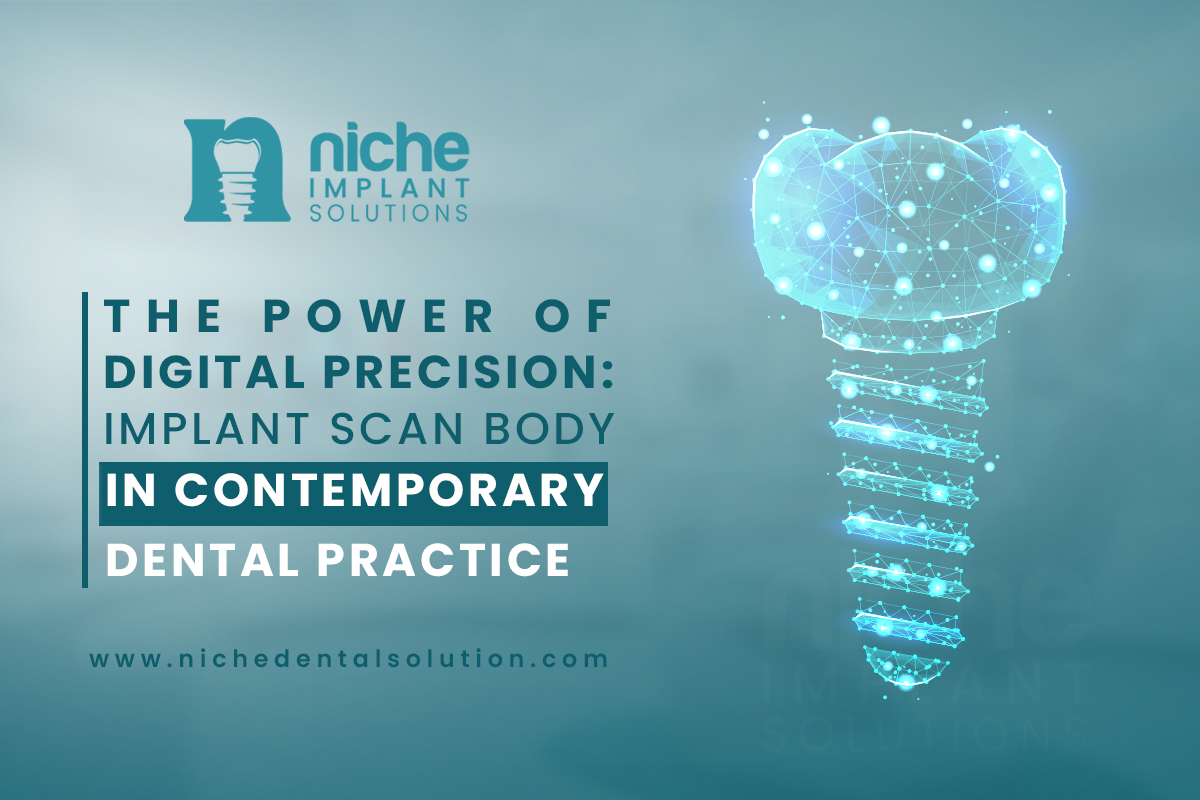
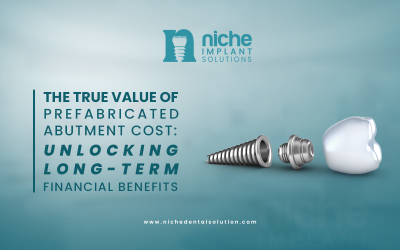
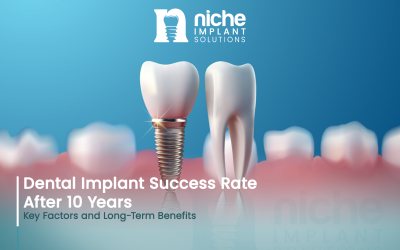
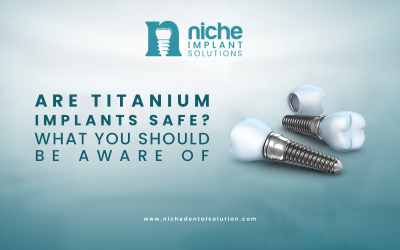
0 Comments